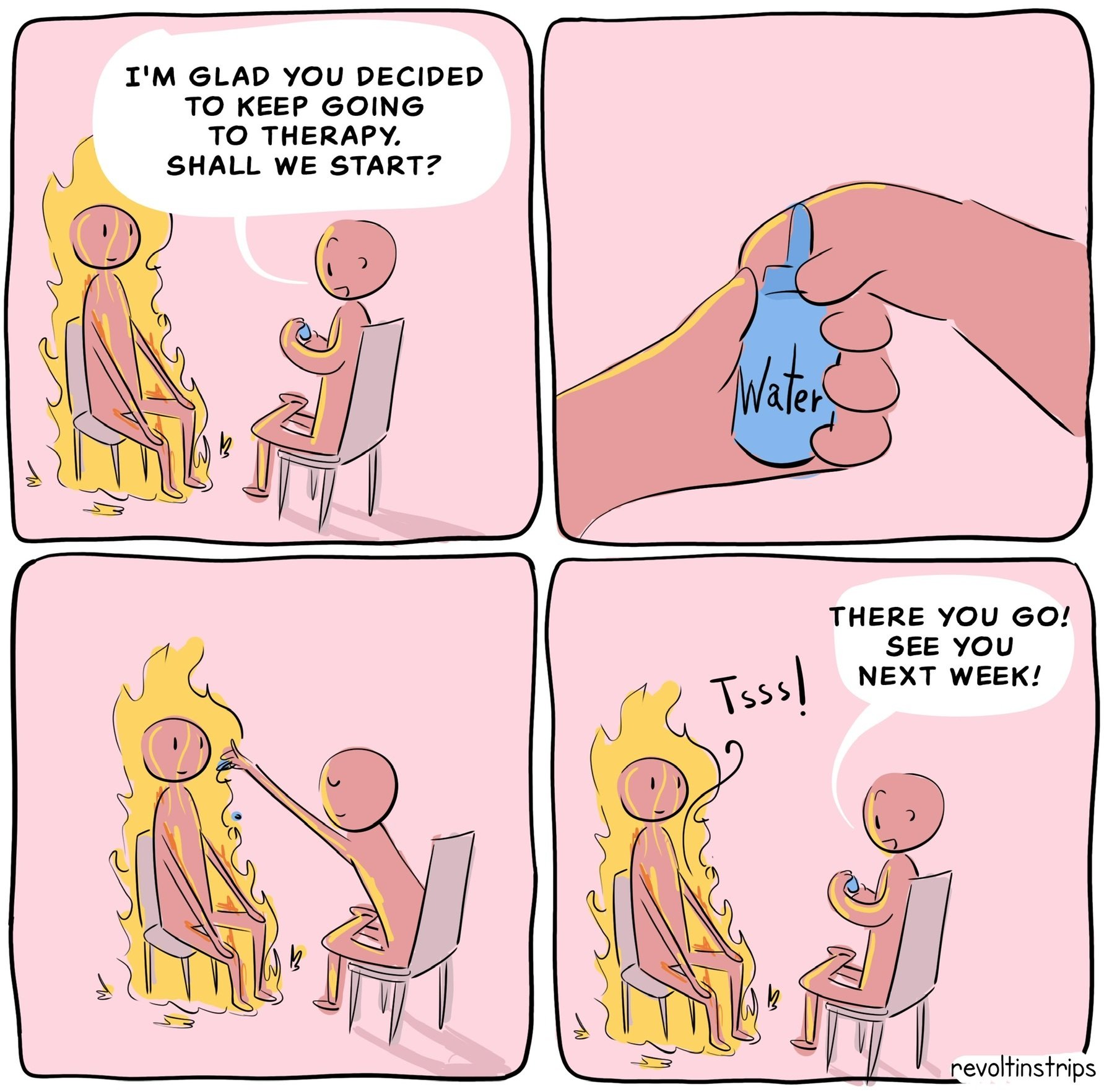Mental Health
Welcome!
This is a safe place to discuss, vent, support, and share information about mental health, illness, and wellness.
Thank you for being here. We appreciate who you are today. Please show respect and empathy when making or replying to posts.
The rules for posting and commenting, besides the rules defined here for lemmy.world, are as follows:
Rules
1-Posts promoting paid products and services of any kind are not allowed here.
2-All posts and comments must be helpful and supportive. Do not put vulnerable people at risk.
3-Do not DM or ask to speak privately to any of our members unless they specifically request it.
If a person from this community disturbs you in a comment, please report the comment. If you receive a DM you did not request, send a screenshot of the DM in a message to a moderator. This is a bannable offense.
4-Suicide, Self-Harm, Death-- Extended discussions are STRONGLY DISCOURAGED here. First, mods and community members are caring people, but not experts in crisis situations. Second, we want to avoid Lemmy becoming like many commercial social media platforms, where comments can snowball into counterproductive talk.
If you or someone you know needs more help than can be found here, please refer to the pinned resources.
If BRIEF mention of these topics is an important part of your post, please flag your post as NSFW and include a (trigger warning: suicide, self-harm, death, etc.)in the title so that other readers who may feel triggered can avoid it. Please also include a trigger warning on all comments mentioning these topics in a post that was not already tagged as such.
Partner Communities
- Therapy
Neurodegenerative Disease Support
Friends and Family of People with Addiction
To partner with our community and be included here, you are free to message the current moderators or comment on our pinned post.
Community Moderation
Some moderators are mental health professionals and some are not. All are carefully selected by the moderation team and will be actively monitoring posts and comments. If you are interested in joining the team, you can send a message to ZenGrammy for more information.
view the rest of the comments

You’re absolutely right—therapy often feels like putting a drop of water on a raging fire. As mental health professionals and advocates, we find ourselves treating individual symptoms while the systemic causes of suffering—economic exploitation, discrimination, state violence—continue unchecked. But what if therapy itself could be reimagined as a tool of collective resistance and liberation rather than just individual adaptation?
The Limits of Individual Therapy in a Dying System
Traditional therapy, rooted in Western individualism, focuses on personal pathology rather than the oppressive structures that create distress in the first place. It helps people survive, but rarely challenges the conditions that make survival so difficult. As fascistic policies escalate—targeting marginalized communities, undermining democracy, and deepening economic inequality—our role cannot simply be to help people “cope” with injustice. Coping is not enough.
Therapy should not just help individuals endure oppressive systems; it should equip them to dismantle and replace those systems. We need a revolution in mental health—one that shifts from isolated, clinical solutions to community-based, justice-oriented healing.
A New Vision: Therapy as Collective Resistance
1. Worker Cooperative Mental Health Practices – Breaking away from profit-driven therapy models and creating mental health collectives that serve communities rather than corporations or insurance companies.
2. Radical Group Therapy & Mutual Aid – Encouraging healing circles, community networks, and activist spaces that treat mental health as a shared struggle, not an isolated condition.
3. Politicizing Therapy – Acknowledging that capitalism, racism, and state oppression are core mental health issues and helping people engage in direct action as a form of healing.
4. Revolutionary Care Networks – Moving beyond institutions and creating autonomous, grassroots mental health support systems that are independent of the state and its oppressive mechanisms.
Collective Action is Therapy
The mental health crisis is not just personal; it is structural. And the only real cure is collective liberation. Healing doesn’t happen in isolation—it happens in the streets, in mutual aid networks, in resistance movements. Therapy must evolve to be part of that fight, not just a salve for its wounds.
We don’t just need better mental healthcare. We need a revolution in how we understand and practice healing.